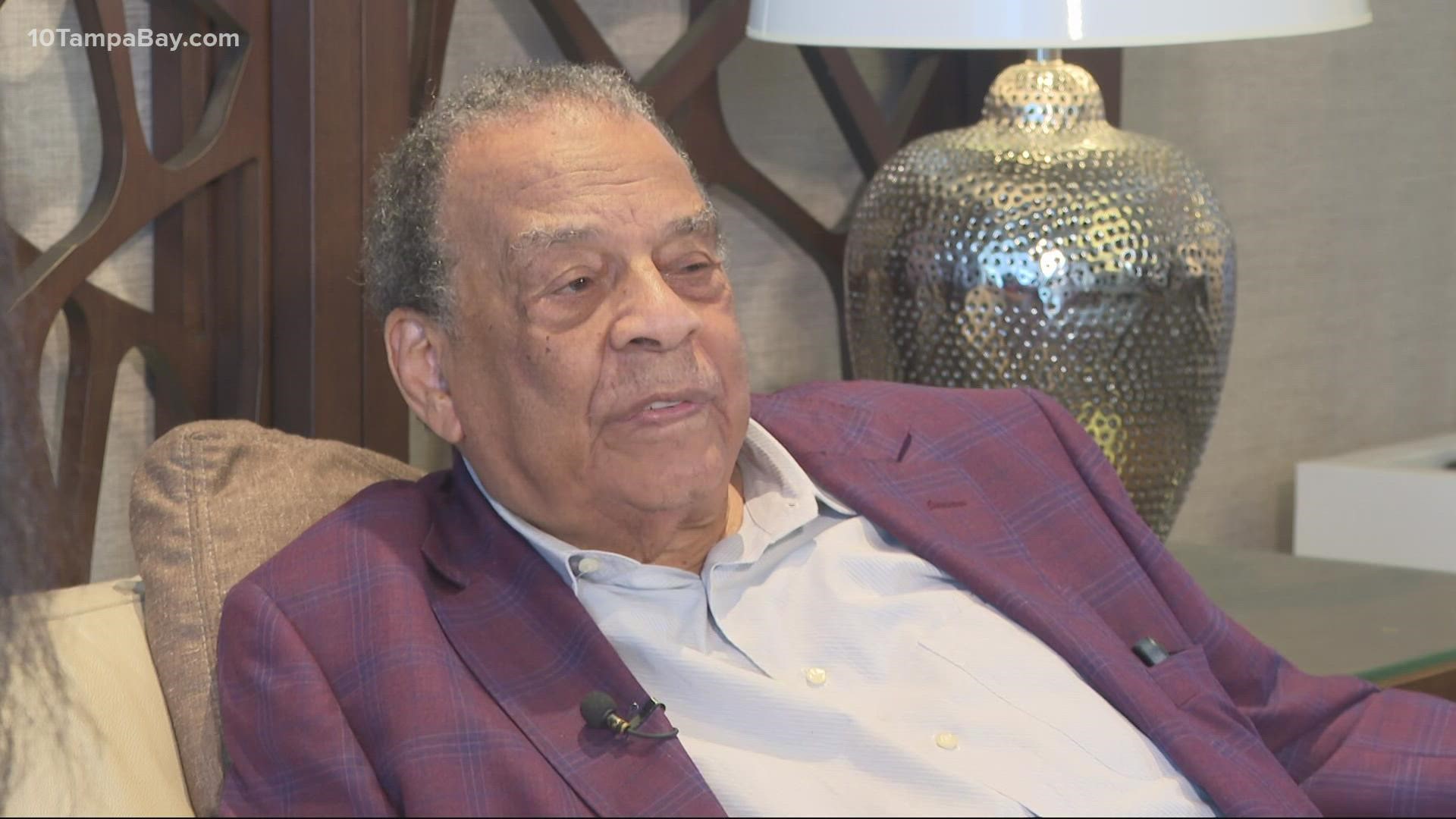SARASOTA, Fla. — One sweltering summer night in 1964, a 32-year-old Andrew Young came face-to-face with the Ku Klux Klan in St. Augustine.
“I knew it was a very dangerous situation,” he told 10 Investigates’ Emerald Morrow during a February trip to Sarasota.
Young, who later became mayor of Atlanta and an ambassador to the United Nations, was a strategist at the time for the Southern Christian Leadership Conference, a human and civil rights organization led by Dr. Martin Luther King Jr. According to the King Institute at Stanford, the SCLC in the spring of 1964 launched a campaign in St. Augustine to end racial discrimination in the nation’s oldest city as it celebrated its 400th anniversary
King was also trying to get support for the Civil Rights Act of 1964 and hoped the St. Augustine demonstrations would push the legislation forward.
But one June night, Young says Dr. King feared the demonstrations would turn violent, and asked Young to turn the protesters around.
“I tried to keep people from marching down, but they refused to turn around,” said Young.
RELATED: 'A King’s Dream': A look at MLK’s time in Florida and his successful fight advancing civil rights
He said an older woman began to sing a hymn called “God Will Take Care of You.”
“I said, ‘Oh, Lord. I know God will take care of me Sunday morning at church [and] most of my life,’ but I didn't have much experience with God versus the Ku Klux Klan in the middle of Saturday night in St. Augustine,” he said.
Still, he continued with the group.
“I walked into the Klan by myself, and I thought I could reason with them. And, I was doing a good job till somebody sneaked up behind me and hit me with a black jack and kicked me and stomped me for a while,” he said.
“That was one night in my life. It happens to be what I think was the best night of my life,” said Young.
The violence of that night and throughout the summer made headlines across the nation. Young says this was the only campaign where the medical bills of protestors outweighed the fees for bail bonds. Both Young and King were arrested as a result of their demonstrations in St. Augustine.
Young said he’s able to make a positive association with such violent memories because of the result of the overall campaign.
He says he believes King’s strategy of non-violence in contrast to the extreme violence of the Ku Klux Klan in St. Augustine pushed Congress to pass the Civil Rights Act of 1964, which President Lyndon Johnson signed into law on July 2 with Dr. King near his side.
“I think was a powerful message,” he said.
Emerald Morrow is an investigative reporter with 10 Tampa Bay. Like her on Facebook and follow her on Instagram and Twitter. You can also email her at emorrow@10tampabay.com.

